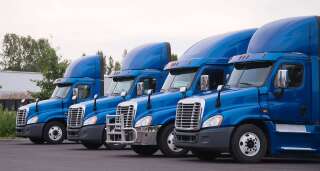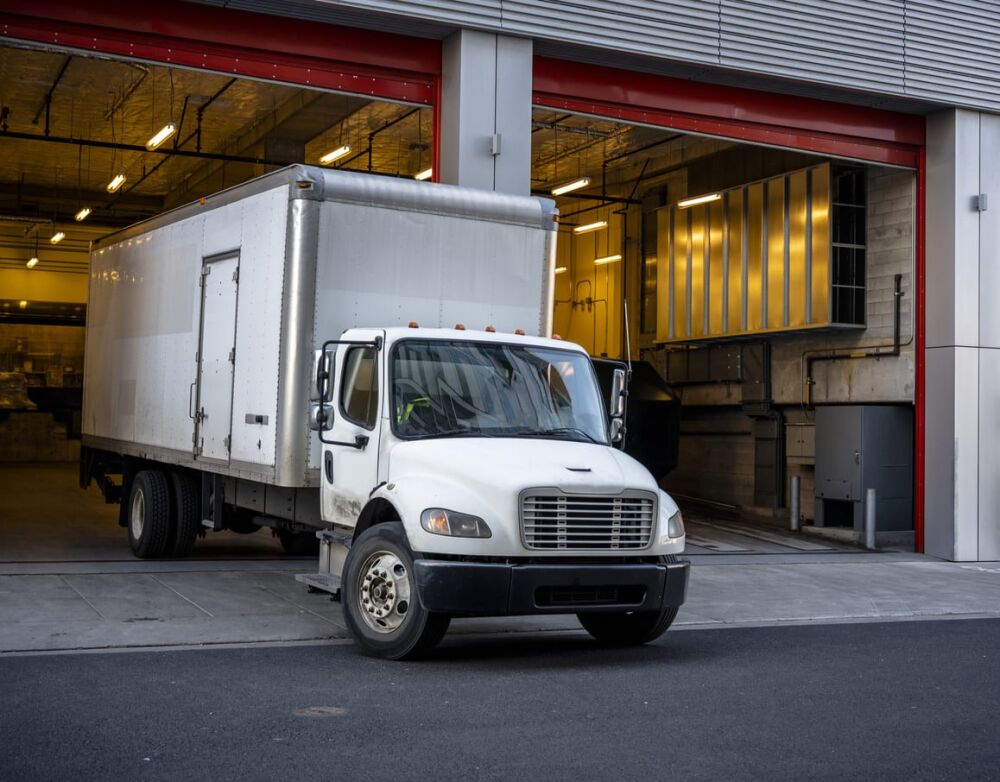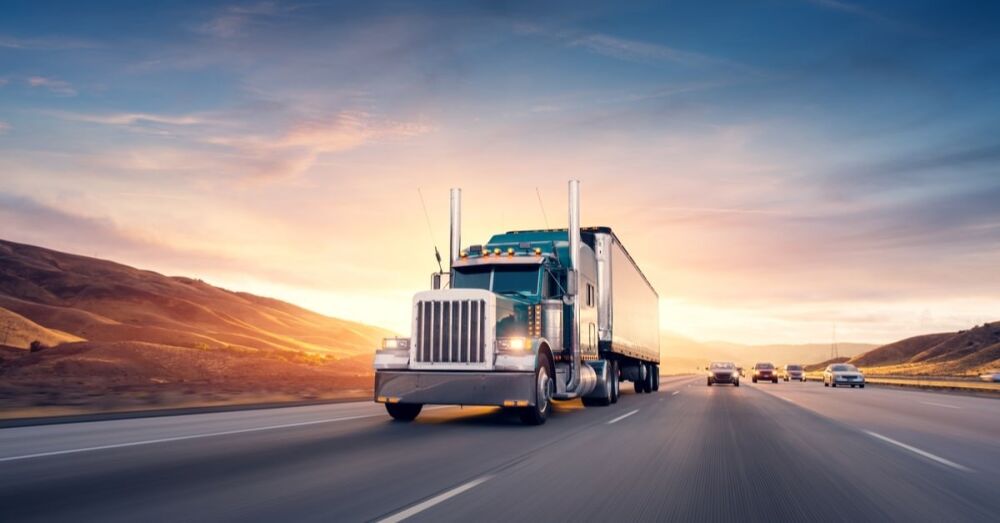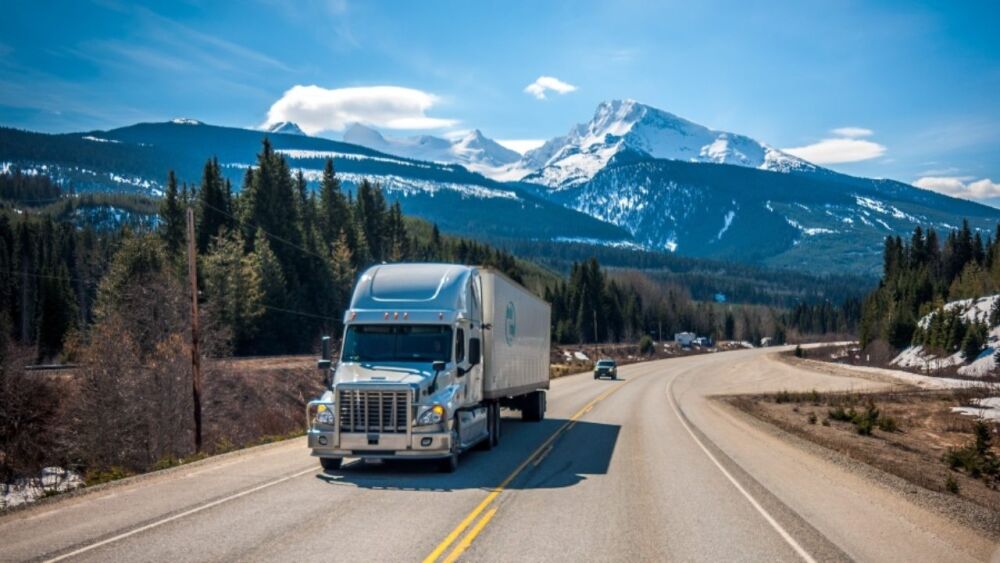Power only trucking is a term that is not new in the freight industry. However, it is not well known by many shippers, especially those who have not been in the industry for long. In this article, we will define what power only trucking is, how it works, and the advantages and disadvantages of using this method for freight transportation. Additionally, we will cover frequently asked questions about power only trucking, how shippers use it, and the types of trailers used. Lastly, we will share how Resolute Logistics can help you get started with power only trucking via power only dispatch services.
What is Power Only Trucking
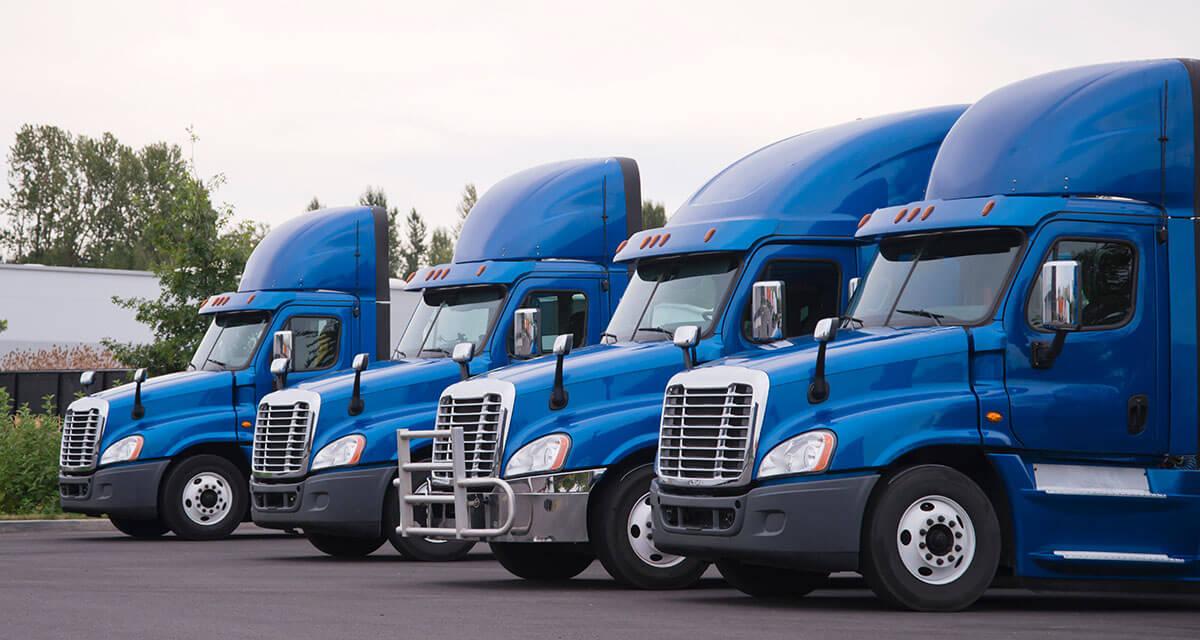
In trucking, power only means that a trucking company uses only its tractor or power unit to move freight. The trailer used to transport the freight belongs to the shipper or a third-party trailer company. In power only trucking, the trucking company is responsible for providing the tractor and driver to haul the trailer.
How Power Only Works in Trucking
Power only works in trucking when the trucking company uses its power unit to move a trailer from one location to another. The shipper or a third-party trailer company provides the trailer that is hooked to the power unit. The trucking company provides a qualified driver who hooks up to the trailer and hauls it to its destination.
What is the Difference Between Power Only Trucking and Regular Truckloads?
The primary difference between power only trucking and regular truckloads is that the trucking company only provides the power unit in power only trucking. In regular truckloads, the trucking company provides both the power unit and the trailer used to transport the freight.
Advantages of Power Unit Trucking

Cost-effective
Power only trucking is a cost-effective solution for shippers as they do not have to pay for the trailer. The shipper or a third-party trailer company owns the trailer used to transport the freight.
Flexibility
With power only trucking, shippers have the flexibility to use different types of trailers for their freight. This allows them to meet specific shipping requirements and handle different types of freight.
Dedicated Capacity
Power only trucking provides dedicated capacity for shippers. The trucking company provides a qualified driver and tractor to haul the trailer, ensuring that the freight is delivered on time.
Reduced Liability
In power only trucking, the shipper or a third-party trailer company owns the trailer, reducing the liability of the trucking company.
Increased Efficiency
Power only trucking allows the trucking company to increase efficiency by providing the power unit and driver, while the shipper or third-party trailer company provides the trailer.
Disadvantages of Power Unit Trucking

Limited Control
In power only trucking, the trucking company has limited control over the trailer. If there is a problem with the trailer, it can delay the delivery of the freight.
Limited Revenue
Power only trucking can limit the revenue of the trucking company as they only provide the power unit and driver.
Limited Availability
Power only trucking may not be available in all areas, limiting the options for shippers.
Equipment Maintenance
The trucking company is responsible for maintaining its power unit, which can add to the cost of providing power only services.
How Shippers Use Power Only Trucking
Shippers use power only trucking when they have a trailer that needs to be moved from one location to another. This can be for a variety of reasons, including equipment shortages, capacity constraints, or to meet specific shipping requirements. Shippers can work with a trucking company to provide the power unit and driver to haul their trailer to its destination.
Using truck dispatch services, drivers often find orders with a trailer that only have the power unit of a truck.
How to Get Power Only Loads
Shippers can find power only loads by working with a trucking company that offers power only services. The trucking company will provide the power unit and driver to haul the trailer. Shippers can also find power only loads through load boards or brokers who specialize in power only trucking.
Types of Trailers for Power Only Trucking
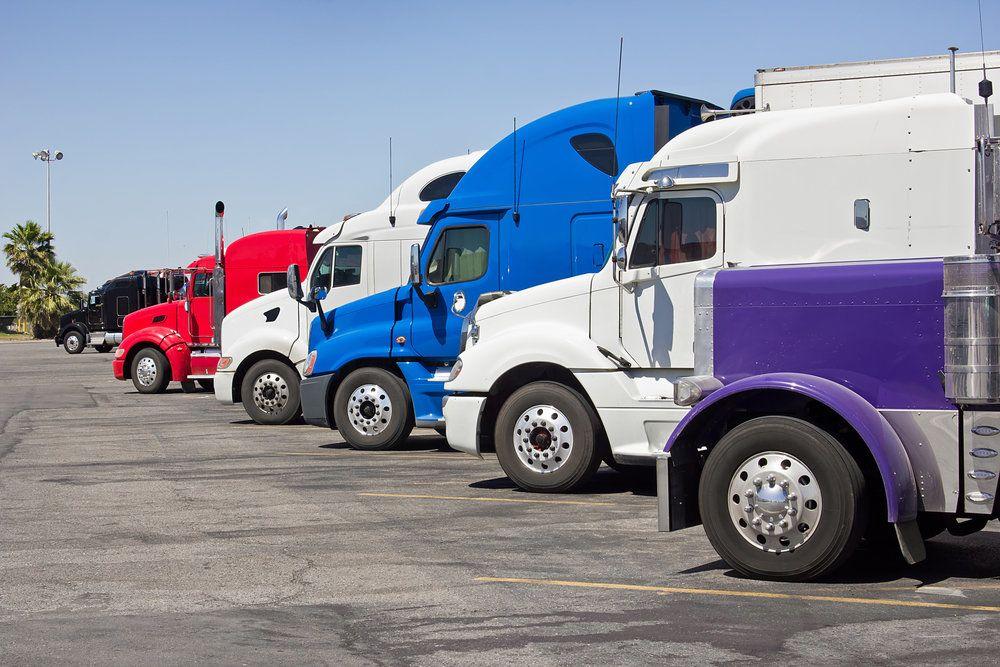
There are different types of trailers used in power only trucking, depending on the type of freight being transported. Some of the trailers used in power only trucking include:
- Power Only+Reefer: Reefer trailers are used for transporting perishable goods that require temperature-controlled environments. Shippers can use power only services to transport their reefer trailer. Learn more about reefer dispatch.
- Power Only+Dry Van: Dry van trailers are used for transporting dry goods such as consumer goods, food, and beverages. Shippers can use power only services to transport their dry van trailer. Learn more about dry van dispatch.
- Power Only+Step Deck: Step deck trailers are used for transporting oversized or over-dimensional freight. Shippers can use power only services to transport their step deck trailer. Learn more about step deck dispatch.
- Power Only+Flatbed: Flatbed trailers are used for transporting oversized or heavy freight that cannot be transported in a dry van or reefer trailer. Shippers can use power only services to transport their flatbed trailer. Learn more about flatbed dispatch.
Frequently Asked Questions

What is Power Only for Trucks?
Power only for trucks means that a trucking company uses only its power unit to move a trailer that belongs to the shipper or a third-party trailer company. The trucking company provides a qualified driver to hook up to the trailer and haul it to its destination.
Is Power Only Trucking Profitable?
Yes, power only trucking can be profitable for trucking companies. However, it depends on the rates negotiated with the shipper or broker, the cost of providing the power unit and driver, and the availability of power only loads.
How to Get Loads for Power Only Trucking?
Shippers can find power only loads by working with a trucking company that offers power only services or through load boards and brokers who specialize in power only trucking.
Which Trailers are Good for Power Only?
The trailers used for power only trucking depend on the type of freight being transported. Reefer, dry van, step deck, and flatbed trailers can all be used for power only trucking, depending on the needs of the shipper.
Get Started with Resolute Logistics

If you are looking for a reliable trucking company that offers power only services, Resolute Logistics can help. We have a fleet of power units and qualified drivers ready to haul your trailer to its destination. Contact us today to learn more about our power only services and how we can help you transport your freight efficiently and cost-effectively.
Conclusion
Power only trucking is an efficient and cost-effective way for shippers to transport their freight. By using a trucking company that provides the power unit and driver, shippers can reduce their costs and increase their flexibility. While power only trucking has its advantages and disadvantages, it can be a profitable option for trucking companies that specialize in this type of service. If you are looking for a reliable partner for your power only transportation needs, Resolute Logistics can help you get started. Contact us today to learn more about our power only services and how we can help you transport your freight efficiently and cost-effectively.

